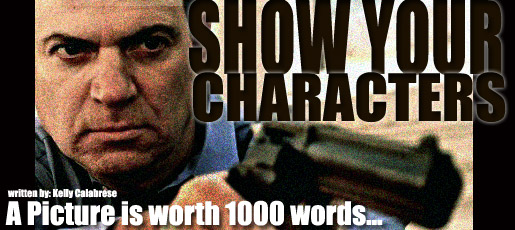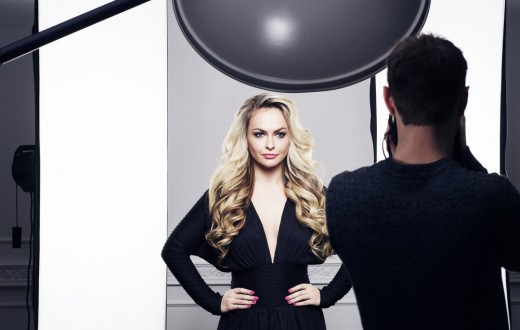With several years in the business, both as a Broadway actor and now an agent, Josh Sassanella talks about the disconnect between agents and their clients. This is an issue that has been in the industry for years yet, barely anyone addresses this topic. If the relationship between the agent and the actor is strong, then the more likely you both will succeed when working side by side. Unfortunately, this is not the case sometimes and both parties reach a dead end. Let’s take a deeper look into my interview with Josh:
So I remember in your e-mail you said something about the disconnect between actors and agents. Can you elaborate on that a little bit?
 I’ve heard stories of actors losing their agent after being passed along to a rep they don’t even know, on a large roster, after an agent leaves or is let go. It’s hard to connect with your agent when you don’t even know who they are. Recently a friend waited weeks for a response. Another isn’t even sure if their agent is still working or in business. The worst story I’ve heard is of a young lady who was signed with a manager, who, in one year, submitted her for ninety-eight pages of breakdowns. NINETY-EIGHT PAGES. My most skilled actors who I submit skillfully will have 6-10 pages and that’s a lot of projects. You know, things like that.
I’ve heard stories of actors losing their agent after being passed along to a rep they don’t even know, on a large roster, after an agent leaves or is let go. It’s hard to connect with your agent when you don’t even know who they are. Recently a friend waited weeks for a response. Another isn’t even sure if their agent is still working or in business. The worst story I’ve heard is of a young lady who was signed with a manager, who, in one year, submitted her for ninety-eight pages of breakdowns. NINETY-EIGHT PAGES. My most skilled actors who I submit skillfully will have 6-10 pages and that’s a lot of projects. You know, things like that.
When I hear these stories I go, what is happening? Where’s the disconnect? And as somebody who advocates the way that I do for my clients, the thing that I’ve noticed is, there are agents who are aware of the benefit and the damage that they can do to somebody’s career – and there are agents who are only aware of the money they can make. All that to say, I’m stressing constantly to both young actors who are just beginning their careers, and seasoned professionals, that whether they sign with me or someone else, they must make sure they sign with the right agent for them. And while everyone is eager to have someone on their side, not signing is always better than signing with the wrong someone.
When I was asking Josh this question and he said that an actor got submitted for ninety-eight pages, my jaw dropped. I was stunned that this was the case because there was CLEARLY some sort of disconnect. When agents submit for roles, they need to be specific for their client’s type, not submit them for everything under the sun. He stated that “you’d be surprised at how many horror stories are like that.”
The next question veers away from that topic. Next I was curious to see what Josh’s take on what he looks for in a headshot and resume. I found his response to be interesting:
You know, it’s a crazy world we live in right now. Actors do such a good job of putting their talents out there, and making their material. I’ll say that when I meet with somebody and they give me their headshot and resume, that’s rarely the most important part to me. If I’ve got somebody who I think is fantastic, and I’ve found them on YouTube, and found their videos, and they have done a good job of putting enough out there for me, I think they could possibly start their own business. The interview part of it is, what’s on your resume, and if you know what’s on there. So, a headshot and resume are good, but they aren’t the top factor in whether or not I take an interest in you.
Josh and I then discussed what is important about the client-agent relationship and what is important to him besides just the talent:
 I find that the it factor is spirit versus talent. I pride myself on being able to find that in the interview, and through just getting to know somebody, as much as I like really sitting down and having an audition and doing a little coaching session, and giving feedback and things like that. You know, it all plays a role in it.
I find that the it factor is spirit versus talent. I pride myself on being able to find that in the interview, and through just getting to know somebody, as much as I like really sitting down and having an audition and doing a little coaching session, and giving feedback and things like that. You know, it all plays a role in it.
So in my opinion, who they are, and whether they have a good head on their shoulders, and if they can really see this business as something that they have to do no matter what, is important. As being somebody who, you know, started as an actor and then found all these other avenues to be creative, it’s such an important part of me to know that the people I signed, aside from their resume, are just good humans who are artists and see themselves doing nothing but pursuing a career in this awesome business of show, you know?
I was curious to see Josh’s take on self-taping. Here’s his spin on it:
You know, it’s funny that you say that because I just produced a video for our roster of self-tape tips. Change what clips get auditions and what don’t. Ultimately, I think the production value. There’s a balance that you can find. I think if Denzel Washington gave you the best monologue you’ve ever seen in your life in his apartment with just a phone, he’s still gonna get the audition.
It’s ultimately execution vs. having the set up in the 4K video and all that stuff. You know, when I deal with my clients, I’m like don’t set up your lighting until you know that we both agree that your work on that material is ready to be shot. It’s all about your performance and whether, you know, you can get that to translate to the video versus, you know, how much money you spend to get it shot.
The interview I had with Josh was informative and his wealth of knowledge is something that all aspiring actors should listen to. I enjoyed talking with Josh, especially during this uncertain time, and I hope to connect with him in the future.







